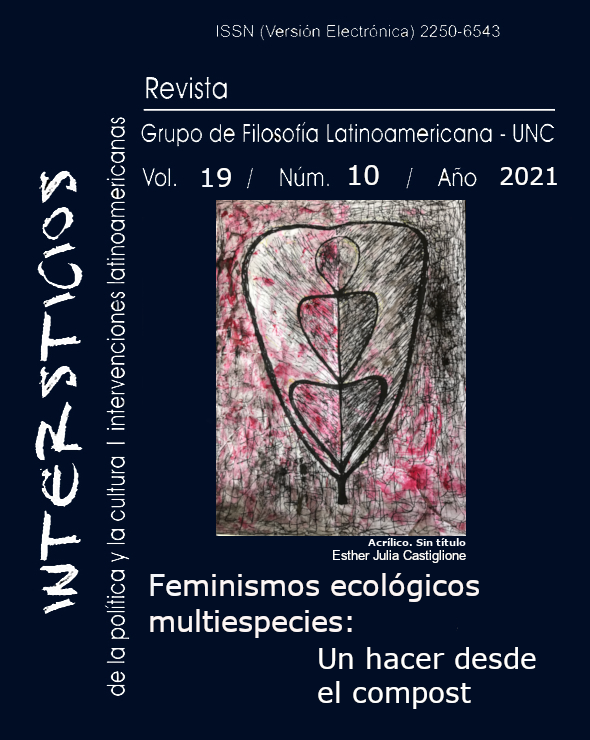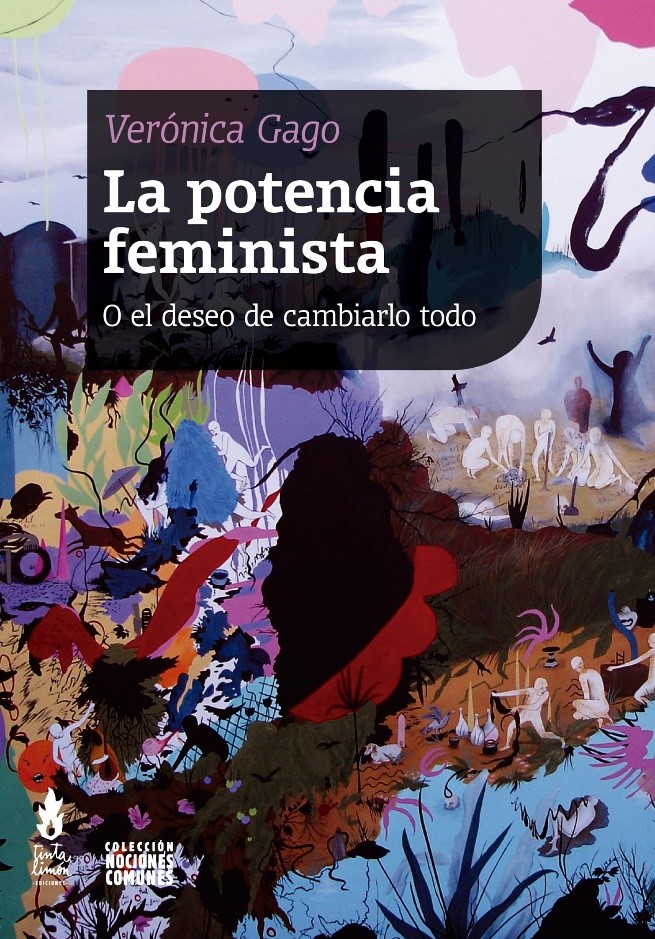Vol. 10 No. 19 (2021): Multispecies ecological feminisms: a make from compost

Multispecies ecological feminisms: a doing from the compost
In the diverse contexts of economic and institutional crisis that we have gone through in recent years in Latin America and the Caribbean, the problem of climate change in the territories places the focus of analysis on issues of centrality linked to the agrarian, agricultural, food, energy, environmental and identity areas, generating new forms of exclusion and selective inclusion that directly affect the lives of women and their communities. Despite these contexts, many women continue to transform their local reality by producing new dynamics and alternatives to face these realities. One of these actions was the "Climate Camp: People against Terricide" in Chubut, organized by the Indigenous Women's Movement for Good Living (Movimiento de Mujeres Indígenas por el Buen Vivir). Anthropologist Arturo Escobar (2012) defines territory, from the perspective of indigenous and Afro-descendant peoples, as a `relational ontology', expressing that "the biophysical, human and supranatural worlds are not considered as separate entities, but rather links of continuity are established between them" (p. XX ). When speaking of the defense of territory, non-human entities and forces of nature are included with whom people enter into reciprocal relationships. For Agarwal (1991), the bond that certain women feel with Nature has its origin in their gender responsibilities in the family and community economy. It is not the affective or cognitive characteristics of their sex, but their interaction with the environment (tending the garden, collecting firewood) that favors their ecological awareness. Overcoming the hierarchical dualisms Nature/Culture, Woman/Man, Body/Mind, Affectivity/Rationality, Matter/Spirit requires a deconstructive analysis that can accommodate the Good Living of Andean communities. As Donna Haraway expresses "It is necessary another relation with nature that overcomes the exploitation and possession", proper of the modern colonial capitalist and patriarchal reason. The idea of multispecies feminisms explores the relations of feminism with the plant world, to question the ecological crisis and the damage of savage capitalism that affects both the bodies/territories and their alliances and knowledge. The contributions of two critical thoughts on feminism and ecologism offer us the opportunity to confront not only the domination of women's bodies/territories in patriarchal society but also an ideology and a structure of domination of Nature linked to the patriarchal paradigm of the male master and warrior. Overcoming sexism, androcentrism, racism and anthropocentrism is fundamental for the sovereignty of the peoples and their communities in these territories











